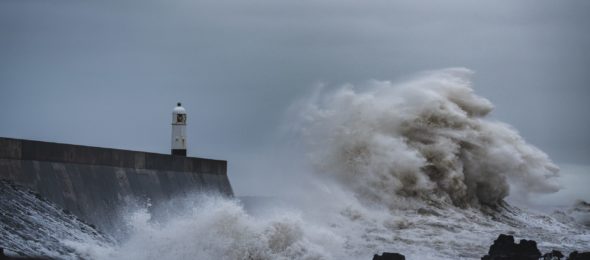The aim of the Weather Rescue At Sea project is to construct and extend the global surface temperature record back to the 1780s, based on the air temperature observations recorded across the planet.
This will be achieved by crowd-sourcing the recovery (or data rescue) of the weather observations from historical ship logbooks, station records, weather journals and other sources, to produce a longer, and more consistent dataset of global surface temperature.
Project Background
Weather has always fascinated humans. Any deviation from the ‘normal’ weather could make a difference between plentiful or famine years, for example. Observing and following the weather through the changing seasons was crucial to survival in the pre-industrial era. It was more so for those who spent long periods of time on board ships travelling across the globe. In the age of sail, knowledge of winds and currents was crucial to reach their destinations safely and on-time.
Out of practical necessity, gradually, maritime nations developed several weather observing instruments and procedures to record the weather encountered on long sea journeys. And, in 1854, a maritime conference of seafaring nations tried to codify observation taking and record keeping to standardize and share observations among themselves. That process amassed an enormous number of ‘standard’ logbooks containing detailed sub-daily weather observations at sea from around the globe, but very few of these logbooks have been transcribed into digital format for modern-day scientists to analyze and understand.
Project Objectives
With this context, the Weather Rescue At Sea project will use the citizen science-based Zooniverse platform to recover some of these observations and make them usable, with a focus on ships travelling through the Atlantic, Indian and Pacific ocean basins in the 1860s and 1870s. Filling in the gaps in our knowledge will remove ambiguity in how the climate varied historically in many regions where observations are currently poor or non-existent.
Logbooks archived at the UKHO (U.K. Hydrographic Office in Taunton) are best suited to produce data in the targeted time period with global coverage. The U.K. has a rich seafaring tradition, and has historical trading links with other nations across the globe.
The data generated through this project will help fill many crucial gaps in the large climate datasets (e.g. ICOADS) which will be used to generate new estimates of the industrial and pre-industrial era baseline climate. But more generally, this data and data from other historical sources are used to improve the models and reanalysis systems used for climate and weather research.
The Weather Rescue At Sea project is the data rescue component of GloSAT, a project funded by the Natural Environment Research Council to develop and analyze an extended and consistent global surface temperature climate record back to the 1780s, based on air temperature observations recorded across land, ocean and ice. The new GloSAT temperature record will give a longer and more consistent picture of global surface air temperature change, and its analysis will improve our understanding of climate change since the late eighteenth century.
This project is being administered through Zooniverse, the world’s largest platform for volunteer-powered research in science and history. Over one million people have helped professional researchers through Zooniverse, with deciphering transcriptions, counting research specimens, and more. Full instructions and tutorials are provided for each project and you’ll get to interact with fellow volunteers through Zooniverse’s tools.
To learn more about how to volunteer, please visit the project’s page on the Zooniverse platform.









I am interested in your project to report old ship’s logs with an emphasis on the weather reports. As a sailor with about 6 months sea rime in traditional sailing vessels, over the years I have read several handwritten logs. I look forward to hearing from you.
Hi Steve, we’re just sharing information about this project on behalf of the organizers. If you’d like to get involved, please visit their website: https://www.zooniverse.org/projects/p-teleti/weather-rescue-at-sea